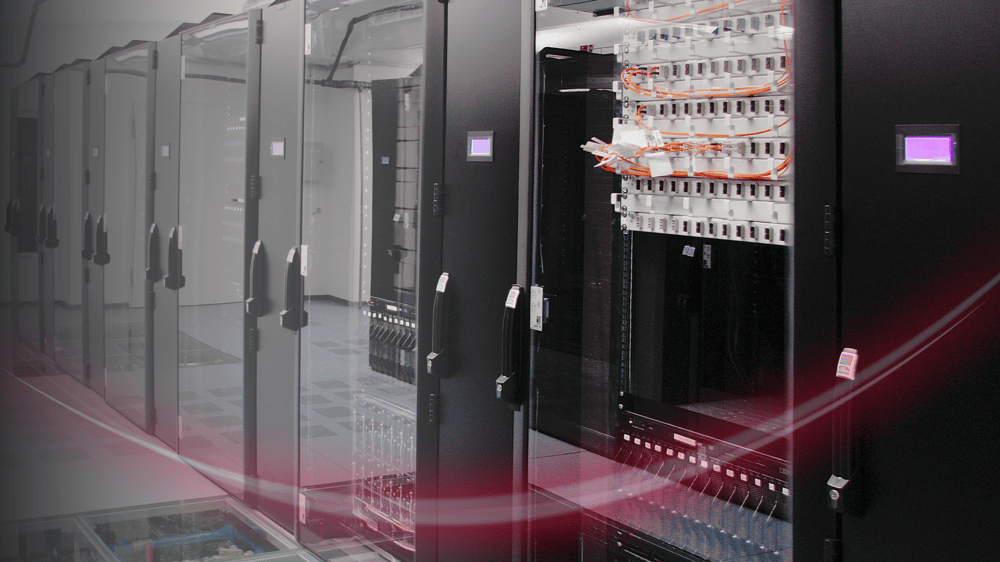By Rittal on 08-Nov-2023 11:51:17

Written by Rittal UK
As technology becomes an increasingly integral part of our lives, the demand for data processing and storage has grown exponentially - and will continue to grow. So how do we meet this huge demand? Traditional large-scale data centres face numerous set-backs; including high operating costs, long deployment times, and a lack of scalability. In response to these issues, a new concept has emerged. You guessed it: micro data centres.
A micro data centre is a compact, self-contained unit that includes all the necessary components for data processing and storage. Micro data centres can be deployed in a variety of environments, from small offices and retail spaces to industrial sites and remote locations. Their main purpose is to handle specific workloads that don’t require the larger scale of a standard centralised data centre. Because micro data centres are enclosed systems that incorporate the relevant infrastructure for specialised tasks in a much smaller package; they are a more accessible form of data storage.
So, what are the benefits of these micro data centres?
1. Lower Latency
One of the key drivers of the rise of micro data centres is the growing demand for edge computing. Edge computing involves processing data closer to the source, rather than sending it back to a centralised data centre or cloud for processing. Seeing as micro data centres sit much closer to the client, they can process information and tasks ahead very quickly. The use of 5G technology alongside this boosts data delivery even further. This allows for a better, faster service; one that traditional data centres cannot keep pace with simply by increasing their bandwidth.
2. Scalability
A huge benefit of micro data centres is their scalability. One size does not fit all, but the capacity of these micro data centres can fluctuate and ‘grow’ as more components are added, such as an additional server. This makes them ideal for rapidly growing businesses that have ever changing data requirements, as a modular system can be scaled to meet demand. Developing this further with agile infrastructure can help generate even greater business growth.
3. Reduced Costs
Access to a centralised data centre or cloud is not an affordable option for a lot of enterprises – and they might not process enough data for this to be a worthwhile investment. This includes both upfront and operational fees; the latter may be especially difficult to maintain. Traditional data centres require a significant investment in real estate, power and cooling infrastructure, and equipment. Micro data centres, on the other hand, can be housed in existing spaces, such as closets, server rooms, or even shipping containers. This reduces the cost of real estate and infrastructure, while still providing the necessary equipment for data storage and processing.
4. Standardisation
As these data centres represent a ‘scaled-down’ equivalent to a traditional data centre, they’re also a lot easier for company executives and IT staff to understand or use. It’s easier to configure these data centres because of their specific purpose. A company’s data operations can run more smoothly and with fewer technical issues by employing a micro data centre.
5. Speed of Deployment
As micro data centres are significantly smaller than the standard equivalents, it’s possible to ship these centres already fully assembled. This allows for easy installations, lessening the time it takes to get the data centre up and running – they can be functional in a matter of days. This quick turnaround time is critical for businesses that need to respond quickly to changing market conditions and customer needs. A micro data centre also has lower space and power requirements, granting further convenience.
One such case for micro data centres is in the industrial sector. Industrial sites, such as factories and manufacturing plants, often require real-time monitoring and control of machines and equipment. With a micro data centre, businesses can process and analyse this data on-site, providing real-time insights into operations and enabling predictive maintenance to reduce downtime and improve efficiency.
A micro data centre might be exactly what your business needs to handle its data processing; they offer simple installations alongside low latency and scalability – making them an effective solution. At Rittal, we provide comprehensive data centre solutions that encompass; IT racks, cooling systems, power management, monitoring and fire suppression. Saving your business money, time and hassle. Don’t hesitate to find out more about how this can benefit your company!


comments